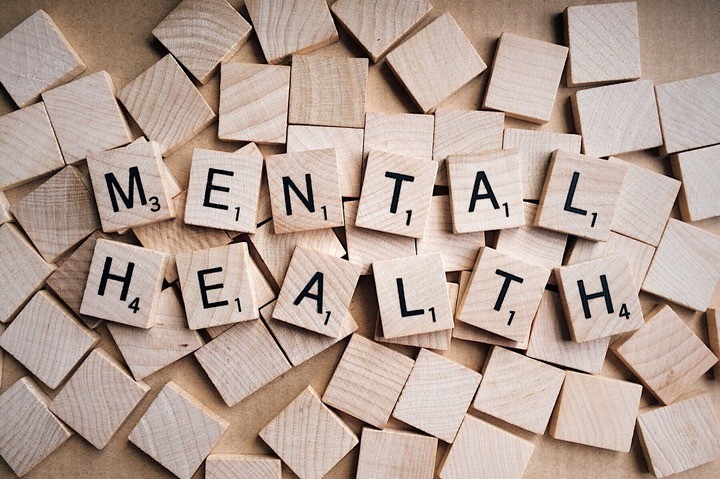Huffington Post Repost. Written by: Cara Tompot
Imagine being told that all the things you plan, all the moments you hope to have and all the achievements you aspire to may not happen. That’s what it is like when you hear a doctor say, “You have cancer.”
While many people know others who have battled or are currently battling some form of cancer, hearing those words never gets easier. Just because medical advancements have greatly improved the chances of remission and a long, healthy life doesn’t mean that diagnosis won’t drastically change your life. Because that’s the thing about life-changing diagnoses like cancer: They change everything.
When people imagine the experience of a typical cancer patient, what often comes to mind are physical symptoms like hair loss, nausea and fatigue. However, some of the biggest challenges a patient and their loved ones have to face are mental.
“When I was diagnosed with stage 3 breast cancer, I had a six-week-old baby. I wondered whether I’d see her grow up, whether she’d remember me when I was gone,” my mom explains. “I was told to get my affairs in order and hope for a year. What did that mean for my family? How would my 12-year-old son cope?” Fortunately, my mom beat the odds and is now entering her 24th year of cancer survivorship.
The types of thoughts my mom had after receiving her diagnosis can take a toll on a patient’s mental health and overall well-being, according to Dana Nolan, a licensed mental health counselor in central Florida.
Being diagnosed [with cancer] does not make someone mentally ill. But, in my experience, most cancer patients develop symptoms of anxiety and depression at some point during or after their treatment. While it is normal to experience mental health challenges, it is not necessary to simply suffer through it.
No two people respond the same way to difficult news, but there are several common mental health issues that may develop after any type of cancer diagnosis.
Anxiety
Cancer offers plenty of chances to worry both during and after cancer treatment. After you or someone you love is diagnosed with cancer, anxious thoughts and worries like these may become impossible to ignore:
- Is my prognosis accurate?
- What if I made the wrong treatment decision?
- What if my next scan shows the cancer has grown?
The last question represents a special category of anxiety nicknamed “scanxiety” by the cancer community. In an article on Medscape, author Nick Mulcahy explains, “Scanxiety is cancer patients’ fear and worry associated with imaging, both before and after a test (before the results are revealed).”
It’s normal to worry about the future sometimes, but when those worries begin to impede your ability to fully live your life, it’s time to ask for help.
A mental health counselor or therapist can help you determine what you are dealing with and how you can manage it. They may also recommend anti-anxiety medications such as Ativan or Xanax.
Depression
Depression affects an estimated 15% to 25% of cancer patients, according to the National Cancer Institute. Patients and their loved ones may develop depression because of the diagnosis itself, anxiety about the future, a changing self-image or even the side effects of certain cancer treatments.
It’s important to note that depression is not the same thing as feeling sad. Clinical depression often manifests in mood swings, fatigue, feelings of emptiness that last for more than a few days and feelings of helplessness or worthlessness. This may require medical attention.
Depression can affect all those around, not just the patient. Melanie Ball, who lost her dad to mesothelioma in 1993 when she was only 14 years old, also had to witness her mother sink into a deep depression that lasted for years after his death. Melanie’s mother chose to suffer in silence, but no one should have to face a life-changing illness, such as cancer or depression, alone.
If you or someone you love is suffering from depression, there is help. Many kinds of medical professionals can treat this condition through counseling, therapy or medication. Joining a support group can also make a big difference for those affected by cancer. In fact, studies show people with terminal cancers who participate in support groups have higher survival rates and increased quality of life.
Grief
People may grieve at many different times during and after a cancer battle, and grief is often shared by a patient’s entire support network. Lorraine Kember, a mesothelioma widow, explains how a cancer diagnosis can start the grieving process:
Anticipatory grief is the name given to the mix of emotions experienced when we are living with the expectation of a personal loss and grieving because of it. Anticipatory grief is particularly relevant to anyone who has received a terminal medical diagnosis and for people who love and care for that person.
Living with the expectation of death or loss can cause us to experience the same array of emotions that develop after the loss actually happens, including shock, denial, helplessness, sorrow, anger and physical pain.
While grief is normal during and after a cancer battle, you don’t have to grieve alone. Spend time with your family; they may be experiencing the same thing. Seek out grief support groups, which are often available at local hospices. And above all, remember to take things one day at a time.
If you or someone you know needs help, call 1-800-273-8255 for the National Suicide Prevention Lifeline. You can also text HELLO to 741-741 for free, 24-hour support from the Crisis Text Line. Outside of the U.S., please visit the International Association for Suicide Prevention for a database of resources.

